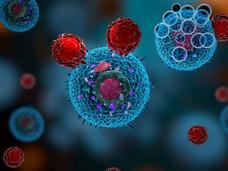| Cancer Information Highlights | | From the National Cancer Institute | | Updating you about cancer causes, prevention, screening, treatment, coping, and more | | | | New from NCI | | Changing the Perception of Early-Phase Cancer Clinical Trials |  | | The number of people in phase 1 cancer clinical trials whose cancer responded to the treatment or remained stable has increased greatly, an NCI study shows. At the same time, treatment-related deaths remained very low. Dr. Naoko Takebe discusses the findings and the importance of phase 1 trials. | | Tackling Difficult Drug Design |  | | Many precision cancer medicines block the activity of abnormal cancer-driving proteins by binding to them. But, there are proteins that have eluded all attempts to stop their harmful effects. This section of the NCI Annual Plan & Budget Proposal for Fiscal Year 2024 describes progress in the struggle to design treatments against these difficult targets. | | Understanding How Immune Cells Near Tumors Are Disrupted |  | | In a new study, researchers showed that cancer cells with mutations in the IDH1 gene release large amounts of a metabolite called D-2HG. Once outside of the cells, D-2HG is taken up by immune cells and disrupts their ability to kill cancer cells. | Study in India Could Make Immunotherapy More Affordable Worldwide
A study in India has found that a very low dose of the immunotherapy drug nivolumab (Opdivo) helped people with advanced head and neck cancer live longer. Because the dose is 6% of what's often used in the United States and Europe, more people with cancer would be able to afford it. | Cancer Screening Guidelines Lack Information on Harms
In a review of 33 cancer screening guidelines, researchers found that many don't capture the potential harms of cancer screening very well. Providing information on harms is important to help people have informed discussions with their health care providers about cancer screening.
| | | | | Also of Interest | Advances in Pancreatic Cancer Research
This page highlights some of the latest research in pancreatic cancer, including advances that may soon translate into improved care, NCI-supported programs that are fueling progress, and research findings from recent studies. | Age and Cancer Risk
Advancing age is the most important risk factor for cancer overall and for many specific cancer types. | Contact Us for Help
Information specialists at NCI's Cancer Information Service (CIS), NCI's contact center, are available to help answer your cancer-related questions in English and Spanish. Reach us by phone, chat, or email. | | | | | |
No comments:
Post a Comment